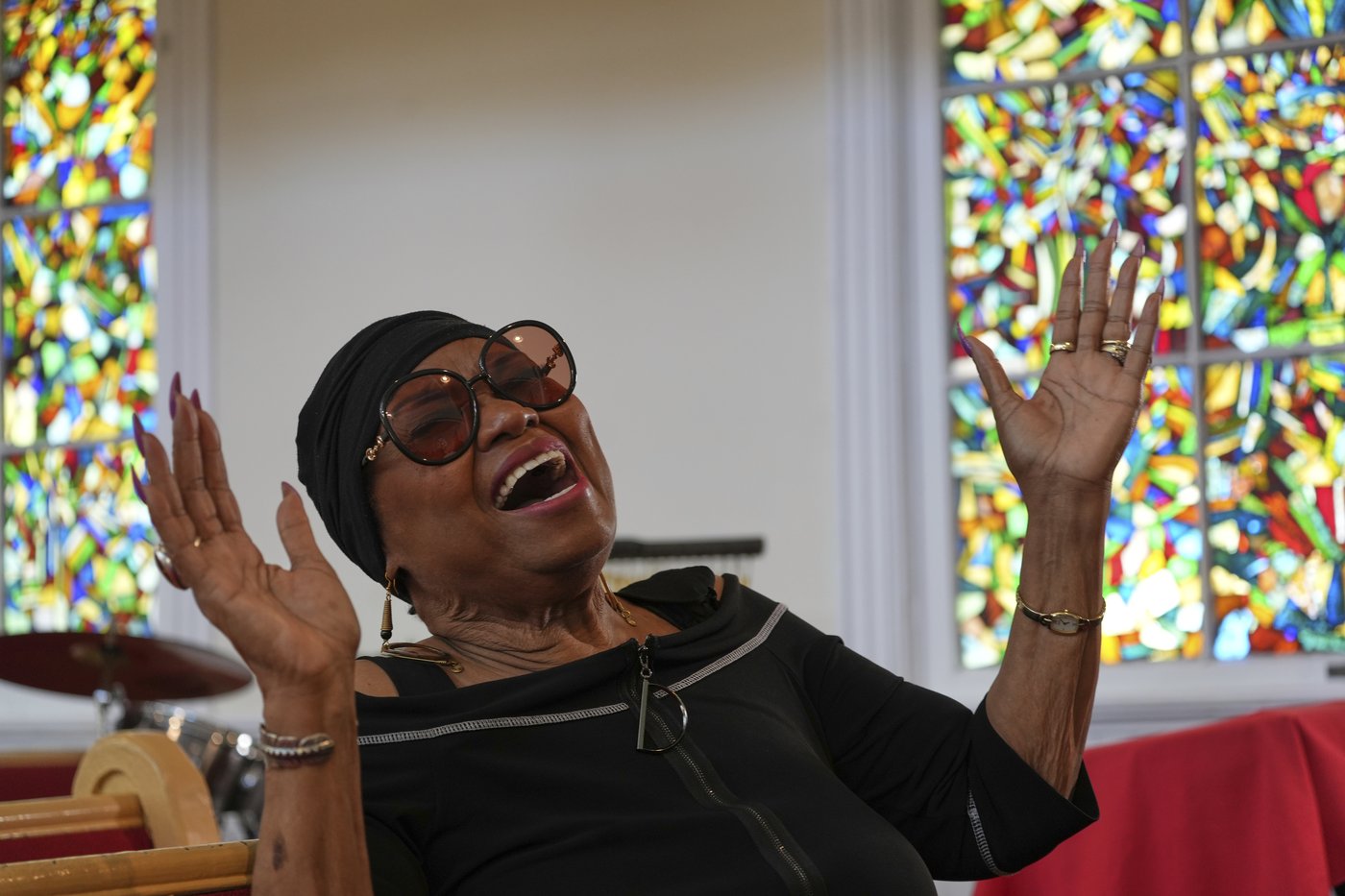Preserving Gullah Geechee Culture Through Music and Tradition
Minnie “Gracie” Gadson, 78, claps her hands and stomps her feet against the floorboards, singing a spiritual that has been passed down through generations. Her voice echoes in the Coffin Point Praise House on St. Helena Island, South Carolina—a place once used by enslaved people for worship and now a symbol of resilience and cultural heritage. As part of the Voices of Gullah group, she and other artists are working to preserve the sacred songs and traditions of the Gullah Geechee people, whose roots trace back to West African ancestors who were brought to the South Carolina Sea Islands.
Gadson grew up in this environment, learning the songs that have shaped her identity. Today, she travels across the U.S. with fellow members in their 70s and 80s, sharing the Gullah Creole language, which has deep ties to West African cultures. This language is more than just words; it’s a living testament to survival and strength, connecting people across the African diaspora.
Anita Singleton-Prather, a performer and director, highlights the significance of Gullah culture in the broader context of history. She notes that the Gullah Geechee people contributed greatly during the American Revolution, particularly in rice farming and indigo dyeing. These skills were not only essential but also reflected the ingenuity and adaptability of the community.
The Gullah Geechee culture encompasses a rich tapestry of art, language, and food, all rooted in the experiences of West Africans who lived on the coasts of the Carolinas, Florida, and Georgia. Eric Crawford, author of “Gullah Spirituals: The Sound of Freedom and Protest in the South Carolina Sea Islands,” emphasizes the importance of preserving this culture. He explains that these traditions inform African Americans about their heritage and show that it still exists today.
Crawford’s journey into Gullah culture began in 2007 when he encountered a student’s thesis on the subject. His curiosity led him to St. Helena Island, where he met the singers and recorded their music. He discovered that many iconic songs, such as “Nobody Knows the Trouble I’ve Seen” and “Kumbaya!” originated from this area. These songs, he says, were not only expressions of faith but also acts of resistance and resilience.
At the praise houses, the enslaved people found a space to connect with their ancestors through prayers, songs, and rituals like the ring shout. Though the physical movements are no longer performed due to age, the essence of these traditions remains alive in the songs sung at places like the Brick Baptist Church.
The Voices of Gullah have taken their music global, performing in the U.S., Belize, and Mexico. Members like Rosa Murray, Joe Murray, and Charles “Jojo” Brown continue to share their stories and songs, hoping that younger generations will carry on their legacy. Brown, 71, says he will keep performing until he can no longer do so, believing that others will follow in his footsteps.
Community efforts to preserve Gullah culture extend beyond music. The Gullah Heritage Trails Tours offer visitors a glimpse into the history and daily life of the Gullah people. Emory Campbell, 82, helped translate the New Testament into Gullah and founded the Penn Center, one of the first schools for freed slaves. He believes that understanding one’s heritage is crucial for identity and continuity.
Marlena Smalls, a singer and actor, has worked to bring Gullah spirituals to new audiences. Her adaptations have even appeared on SAT questions, highlighting the cultural significance of these traditions. Smalls emphasizes the importance of knowing one’s roots, not just for herself but for future generations.
Efforts to preserve Gullah culture are ongoing, with initiatives like Tendaji Bailey’s “Gullah Geechee Futures” project bringing students to visit praise houses and experience the cultural significance firsthand. For Bailey, these visits are transformative, offering a connection to the past and a vision for the future.
As the voices of the Gullah Geechee people continue to echo, their legacy lives on through music, tradition, and the determination of those who seek to preserve it. Their stories remind us of the strength and resilience that have shaped their culture, ensuring that it remains a vital part of our shared history.

